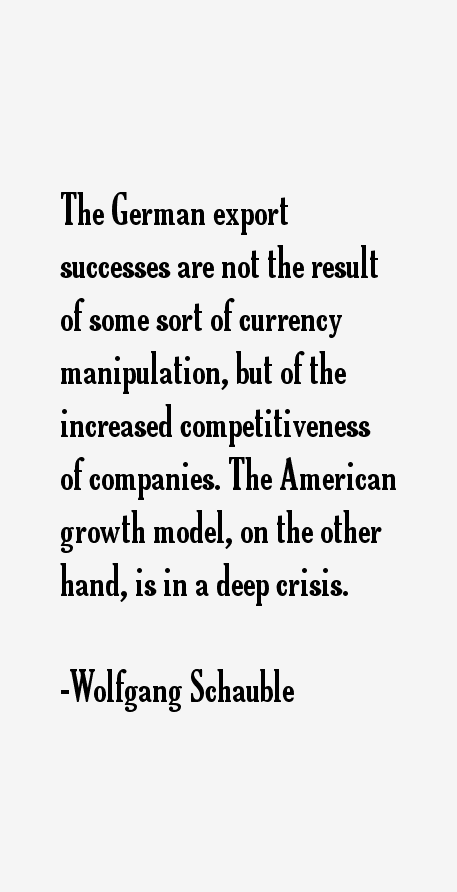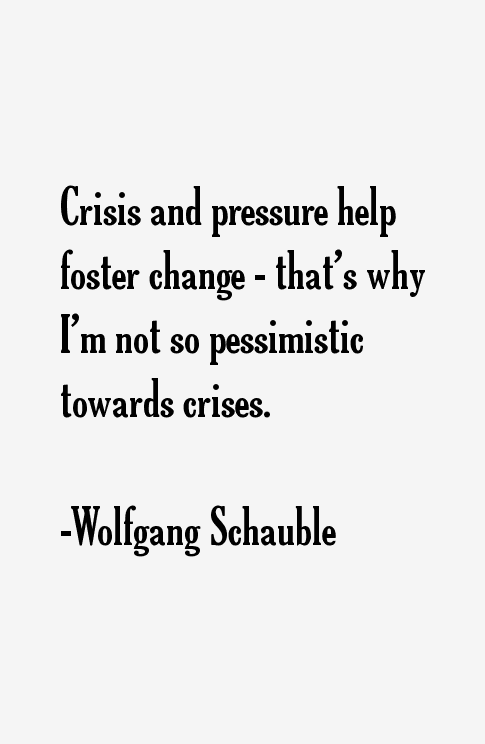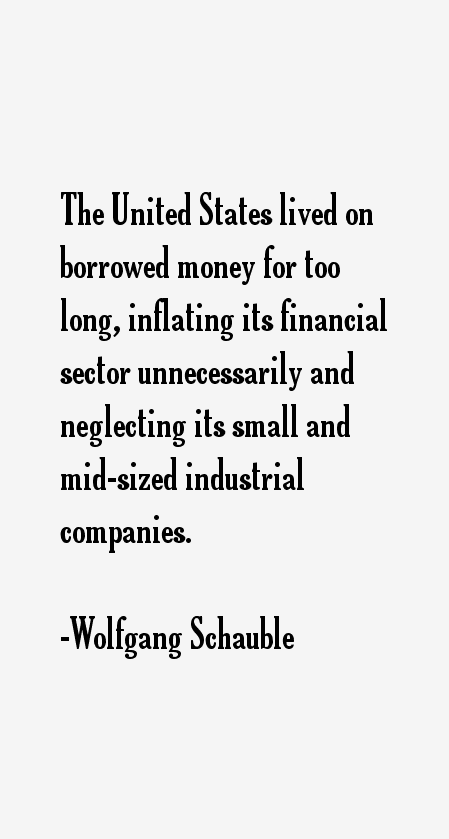Wolfgang Schauble Quotes & Sayings
24 most famous Wolfgang Schauble quotes and sayings (politician). These are the first 10 quotes we have.
“Germany has always stood for an E.U. of the 27 countries. But in light of Britain's continued resistance to further integration steps, as we saw with the fiscal pact, there are limits to my optimism in this regard. It's quite possible that we will have to create the new institutions for the euro zone first.”

“The German export successes are not the result of some sort of currency manipulation, but of the increased competitiveness of companies. The American growth model, on the other hand, is in a deep crisis.”
“As a wheelchair user, you can't move about freely. That's the only thing that bothers me a little. When I'm in the Euro Group in Brussels, colleagues who want to talk to me have to come to me. But I hope they know that this has nothing to do with arrogance.”
“As for the role of France and Germany: French politics is often more self-confident then German politics due to the catastrophe in the first half of the last century. If Berlin and Paris don't agree, then it is difficult to make progress in Europe.”

“There are several silver linings on the horizon. The current account deficits in Spain and Portugal are declining because they have become more competitive and they're exporting more.”
“If we were to have a presidential election in Europe it would be an event that would spark a huge interest in people from Lisbon to Helsinki, just like national elections. And it would create a completely different political setting in Europe.”

“Crisis and pressure help foster change - that's why I'm not so pessimistic towards crises.”
“I would caution against fueling cheap populism. First of all, every German who has spent a vacation in Greece knows that the standard of living there isn't higher than it is in Germany. Second, Greece is paying a high price for European assistance.”

“The United States lived on borrowed money for too long, inflating its financial sector unnecessarily and neglecting its small and mid-sized industrial companies.”
“This much is true: When we created the euro, it wasn't possible to create a political union along with it. People weren't ready for that. But since then, they've grown more willing to go in that direction. It's a process, one that is sometimes laborious and sometimes slow. But it's important to keep the populations involved.”
Wolfgang Schauble Quotes Rating
No Ratings Yet
Leave A Comment
























